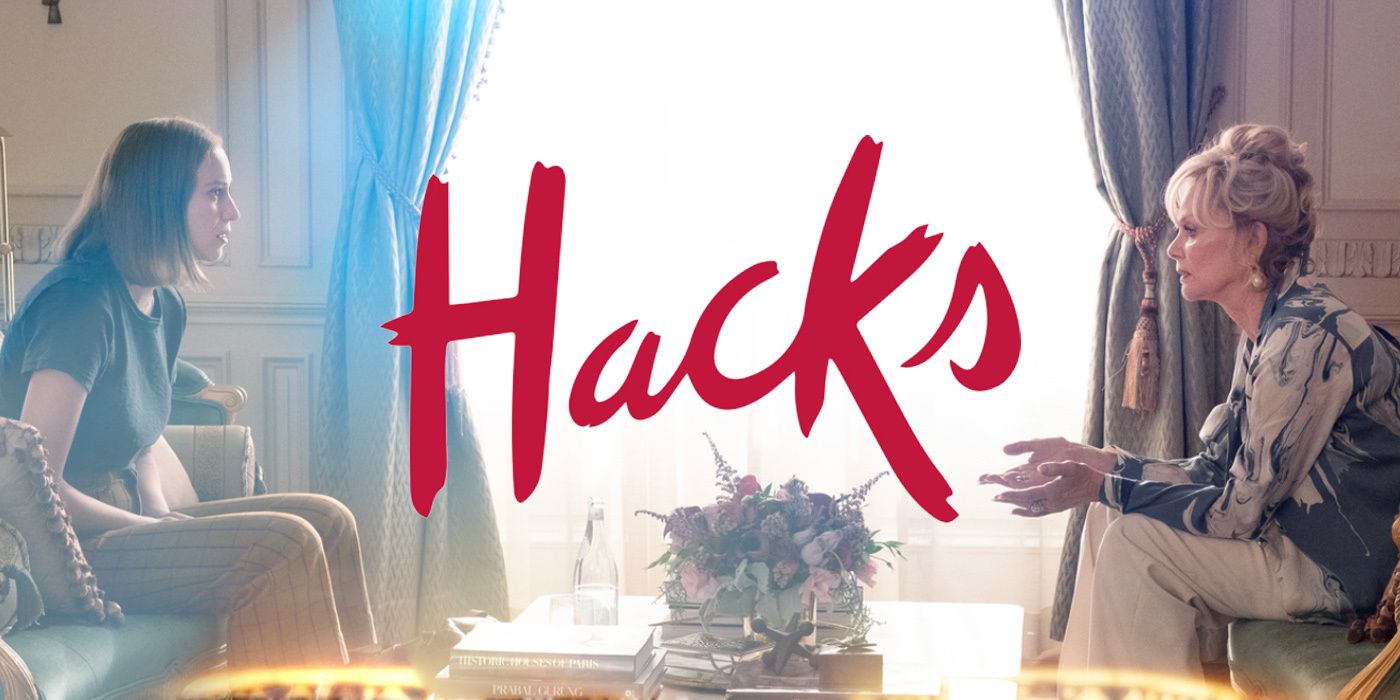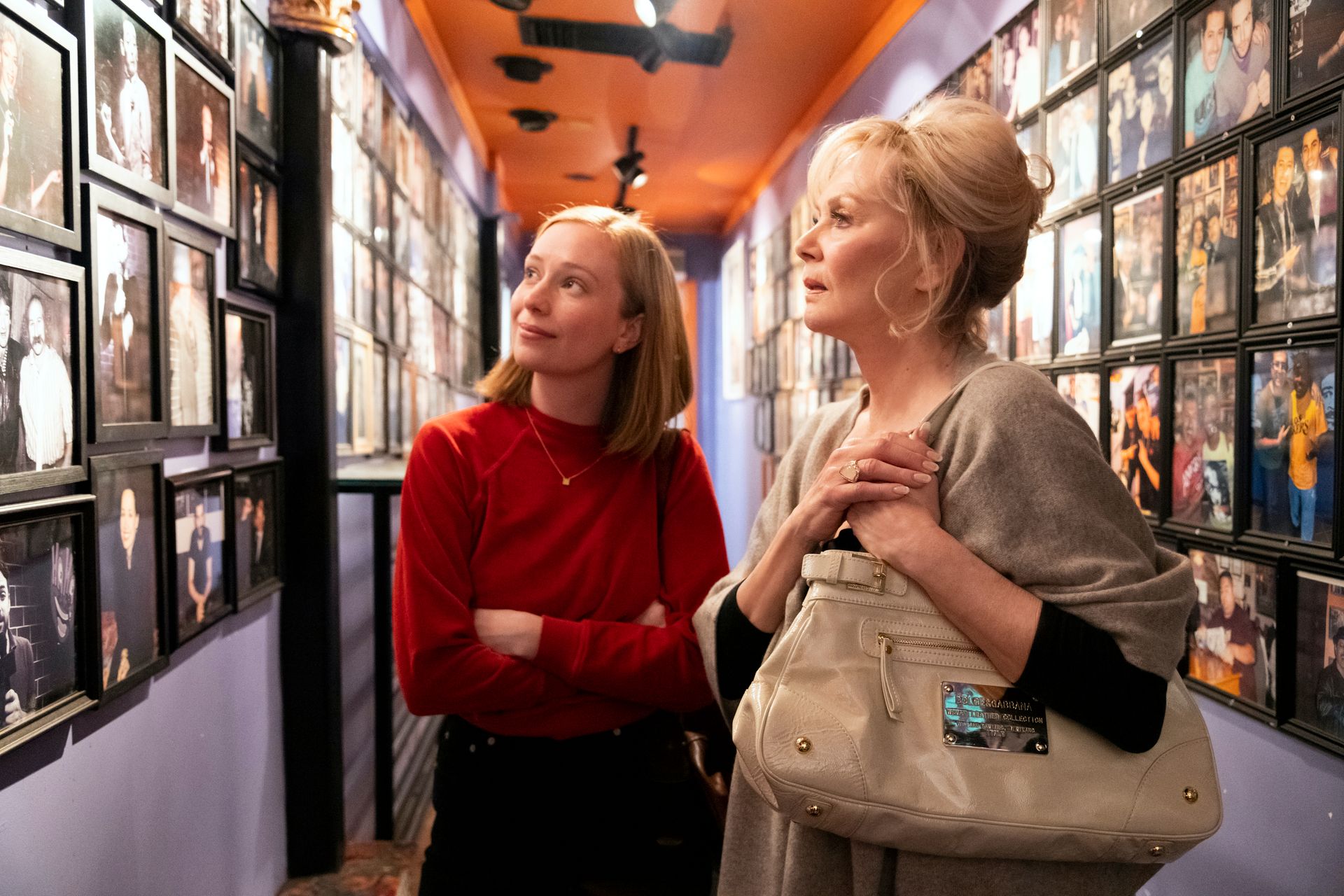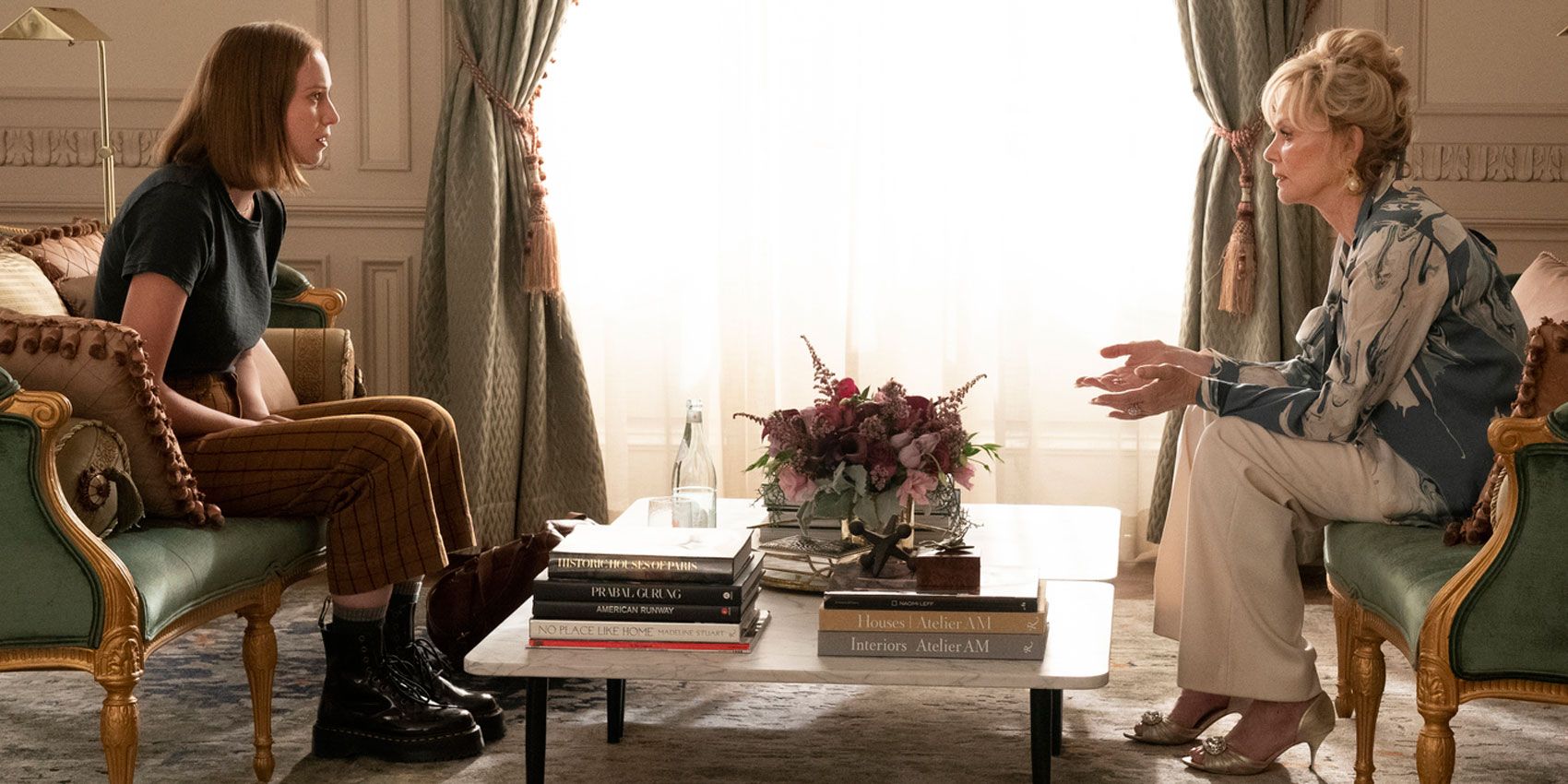Contemporary depictions of female relationships on television have lodged themselves into two categories. These arbitrary narratives of female relationships waffle from "maternal" or "familial" dynamics between older and younger women or friendships between women of the same age. There's not a lot of complicated, messy narratives that fill the in-between, the ones that don't necessarily fit either category but meet in the middle in ways viewers don't expect. Hacks, HBO Max's latest hit series from creators Paul W. Downs (Broad City), Lucia Aniello (Rough Night), and Jen Statsky, gives new life to a tired genre of feminine friendships and dynamics stuck in the past.
Starring the exceptional Jean Smart (Watchmen) as one of the first female standup comics of her time, now being ushered out of her stage in her Las Vegas residency, forges an unlikely alliance with Ava, played by newcomer comic in her own right Hannah Einbinder (North Hollywood). Ava is the embodiment of an overworked, underpaid Millennial who's had the optimism knocked out of her by her current circumstances. After one highly inappropriate tweet meant to be a joke, Ava becomes a social pariah amongst Hollywood writers and is sent to work with Jean's Deborah Vance through their shared agency. A match made in hell, according to both parties. However, not everything goes according to plan, for Ava and Deborah become disgruntedly surprised by the bond they forge in the season's evolution. An unlikely and hard-earned bond that isn't always a straight path to walk.
There's a refreshing twist to their relationship that isn't strictly mother and daughter. There's no proverbial adoption by Deborah to Ava. Just because Jean Smart's character is much older than Ava, the show doesn't turn Deborah into Ava's "mother figure" and reduce her to that. Instead, there's a generational gap that's addressed in this relationship through their friendship. There are no niceties between Deborah and Ava as they navigate their new working relationship, as they both learn to respect one another for their respective places in life. Ava, in understanding that Deborah's exterior doesn't necessarily represent the inner; and Deborah, in finally accepting herself through Ava and letting go of who she needed to be to survive the male-dominant environment she learned to navigate all those years ago.
It's not about chastising each other for their preconceived expectations of one another. Hacks take that assumption and lay it bare for both Ava and Deborah to understand one another for their lived experiences. The relationship barters both their virtues and their flaws. Ava, at first, sees Deborah as a one-dimensional internet jargon "boomer" for her blunt and borderline cruel one-liners. It isn't until the lens shifts in her perception of Deborah that Ava begins to see her in the context of a woman working in one of the most male-dominated spaces of the entertainment industry. The same space Ava is hoping to carve her way into as a comedy writer. Deborah doesn't become this hardened version of herself because she wanted to. She was driven to it as a protective barrier from the inherent misogynist environment she found herself in. All because she, a woman, dared to do comedy.
The show makes sure to treat these two women as equals and elevates their friendship by finding common ground but never erasing their individual experiences. Deborah is a woman who pioneered standup comedy while being a mother, and Ava is a bisexual woman in Hollywood trying to make it as a comedy writer. Deborah's prickly exterior begins to soften as she realizes she's not alone anymore. There are other women in this space she's felt so alone in for such a long time. Young women like Ava remind her that not everything is up to her now. That somehow, ever too small the change, her presence in the industry did make a ripple effect.
This particular portrayal of friendship allows both of these women to become foils for each other that subvert expectations of older female characters and younger ones, especially queer ones. Unlike relationships between Moira and Stevie from Schitt's Creek, Keeley and Rebecca from Ted Lasso, and Cat Grant and Kara from Supergirl, Ava and Deborah are equals. Neither one person in the relationship holds more power than the other. Ava doesn't idolize or project unrealistic expectations onto Deborah just because she's older than her. She doesn't put her on a pedestal that ultimately wobbles and makes her fall when she doesn't meet Ava's perceptions of older women. In this case, it humanizes Deborah. It allows for Deborah to be whatever conflicting woman she is or not.
In the prior relationships, most are cloaked by the idea of a mature older woman becoming a mentor to the much younger female character. There's no real tension between either as they're written more like mother and daughter or in the case of Keeley and Rebecca, older sister and younger one. It's always familial. It takes away the flaws of the characters. The parts that make them whole to one another. Forever having to hide details from one another to keep the dynamic "fun" and "light-hearted" and where conflict can't penetrate that sanitized bubble. It becomes disingenuous and patronizing to both female characters, disproportionately prioritizing and sacrificing one character's complexity for the other's.
Deborah is allowed to be sexy, even having Ava notice her as a desirable woman, and Ava is given room to grieve her past relationship. Both are very messy, complex characters that find themselves in very different places in their lives who must acknowledge one another for that very thing. Deborah's role as a woman in comedy and Ava's current predicament of being a bisexual woman struggling to make ends meet and be taken seriously in a male-dominant space that Deborah made room in makes them more alike than they think. It's also an honest portrayal of generational gaps bridged. It's not a straight line these characters walk, as Deborah and Ava negotiate what each has to offer to the other -- rejecting some things and accepting others. Because that's the reality of these generational gaps: it's a lot harder to find common ground when each has been doing things their way for a long time. They're each a product of very different generations, and Hacks honors that reality through their relationship.
Their relationship, bound by respect and mutual understanding, is rarely shown on television, where the older character doesn't immediately become a motherly figure and the younger infantilized, where accountability of both characters becomes an integral part of their development. Hacks is giving life to future potential relationships between female characters. Their portrayal is rooted in holding each other accountable, even if it means hurting one another but always being very honest about themselves to one another.



